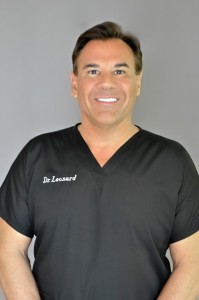Hair Loss Treatments for Brain Tumor and Cancer Patients
Many different things can cause baldness. By far, the most common cause is genetics, which comprises 98% of hair loss. There are fabulous treatments for this cause: Auxo A300 Laser Therapy, Propecia, Rogaine Foam, and hair restoration surgery.
Other causes of hair loss can be from dermatologic conditions leading to scarring alopecia in which inflammation of the skin permanently destroys hair follicles. Trichotillomania is an obsessive-compulsive disorder where people literally pull out their hair. Various medical conditions can lead to thinning hair and baldness including thyroid disease and anemia. Some medications can also cause hair to thin such as warfarin.
One of the most devastating causes of hair loss is called iatrogenic, which means caused by medical treatments such as surgery and radiation therapy, specifically to treat brain tumors and cancers.
 I have had the sincere pleasure and honor in treating some of these brave and resilient people throughout my long career in hair restoration surgery.
I have had the sincere pleasure and honor in treating some of these brave and resilient people throughout my long career in hair restoration surgery.
These conditions are life threatening and require serious and aggressive approaches to, hopefully, save their lives. Once the diagnosis is confirmed, surgical removal of most of the tumor is attempted. All too often, unfortunately, not all of the mass can be removed. Post-operative chemotherapy and/or radiation therapy are needed as adjunctive treatments to the surgery.
The brain surgery often leaves large scars on the scalp. The radiation therapy often permanently destroys the hair follicles in the areas of treatment leaving, sometimes, vast areas of hairless scalp skin. Once these patients survive these life-threatening procedures, they are left with hair loss that is a constant reminder of their horrific diagnosis and treatments. I consider hair restoration surgery the final step in their recovery.
These patients, however, can present to Leonard Hair Transplant Associates for evaluation for hair transplantation with donor hair that may be limited in amount and quality. It is our obligation to carefully assess their scalps, often to discuss their situation with their oncologist and neurosurgeon, and to determine if hair transplantation will provide them with the coverage that is acceptable to them. If we all agree, then we move forward with their surgical hair restoration.
I discuss with them that transplanting follicles into scar tissue or into radiated tissue needs to be carefully planned since this skin is not “normal” in that blood and nerve supplies are altered due to their treatments. We often have to space the transplants further apart than in normal skin to allow for less-than-perfect surgical conditions. These patients usually require more sessions in order to achieve significant density; however, one session alone makes a tremendous difference for these patients to finalize their long road of recovery from their illness.

Dr. Robert Leonard

